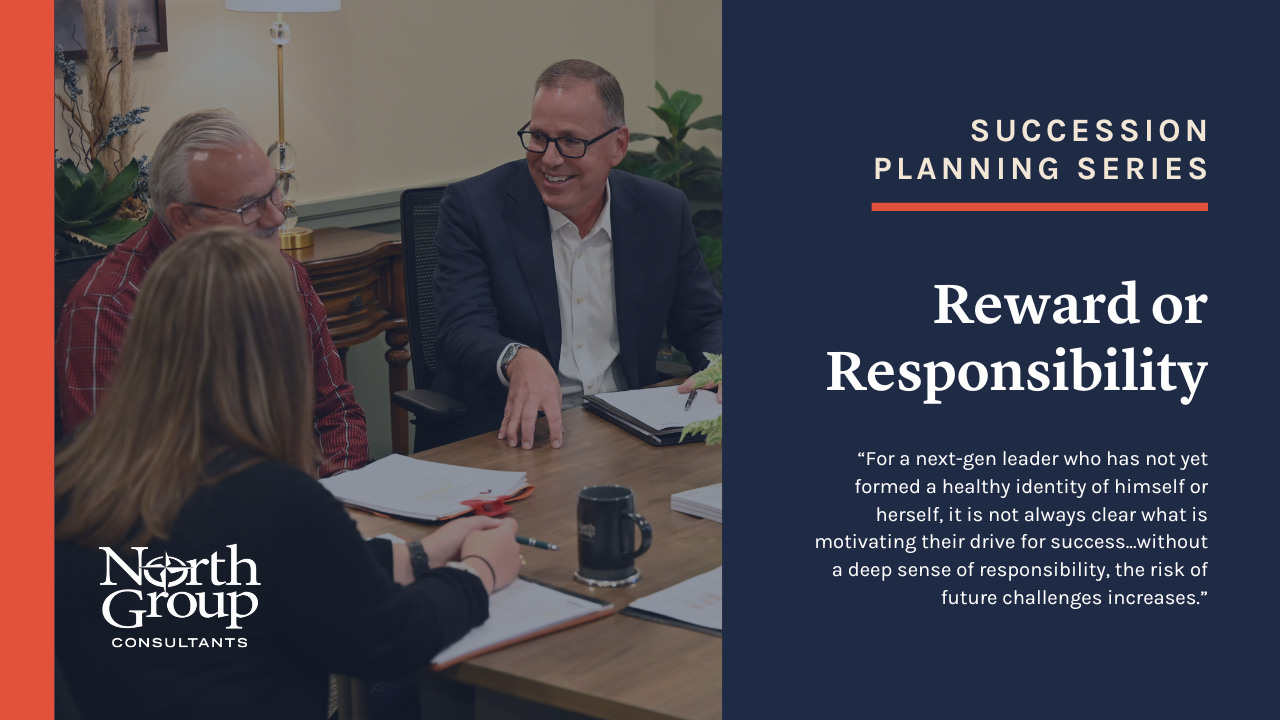Reward or Responsibility
Reward or Responsibility

Succession is often a dangerous and emotionally exhausting business. Many ambitious and goal-oriented successors find it natural to equate their ascension to organizational leadership with their personal value or worth. There are obvious dangers to this tendency, but by no means is it abnormal or indicative of some underlying character flaw. Nearly all of us shape our identity around things we are good at and things we enjoy; when we fail at those things, we sense that we are a failure. An inability to adequately deal with those feelings presents significant challenges to one’s development. As we mature, learning to separate our identity from our roles and performance is a worthy endeavor.
For a next-gen leader who has not yet formed a healthy identity of himself or herself, it is not always clear what is motivating their drive for success. Is it because they have a deep loyalty to the family and the business and they are committed to continuing to build the legacy? Or is it because they view their role as the next logical part of their story and to not achieve it would be a failure and an embarrassment? Are they driven because they love the work? Is being identified as the next leader viewed as a reward to admire, or as a responsibility to be respected?
A combination of these motives might drive a next-gen leader, but without a deep sense of responsibility, the risk of future challenges increases. Often a reward signifies the end of the journey. You’ve arrived, you’ve finished the hard part, and now it’s time to bask in the glory of success. On the other hand, responsibility is a continuous journey of dedication and improvement.
Setting goals is nearly universally accepted as an effective way to accomplish something or to achieve a reward. It works. But there is a potential downside. It’s easy to get so focused on achieving a reward that we have no plan for what comes next. We get there and it feels great, but then we struggle to follow up on it or we go into a kind of funk and languish while we search for direction. This is the basic argument for developing sustainable habits related to our responsibilities, rather than solely focusing on goals. We have a saying at the North Group that “being comes before doing”. Our actions, motivations, and goals should be driven by our character to accomplish the responsibilities we have committed to.
Successful leadership almost always requires playing the long game; healthy transitions require that next-generation leaders have a clear sense of their identity, the source of their motivations, and the responsibilities they are accepting.
To learn more about our approach to succession planning, visit our Transition & Succession Solutions page.
